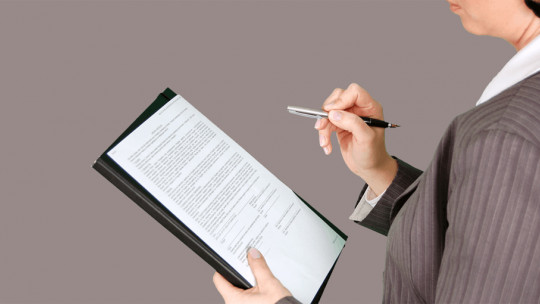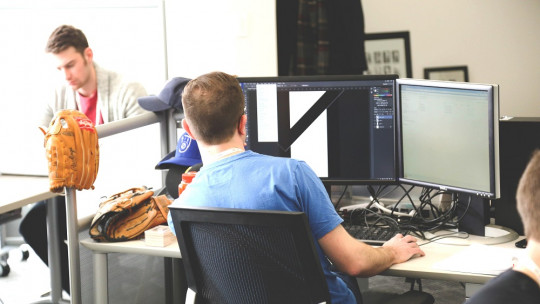We live in a highly competitive world. We can see this fact in multiple aspects of life, one of them being the workplace. For each job offered we can find hundreds of people wishing to be selected, making it necessary for employers to assess the suitability of each candidate to select those most capable of performing the roles of the position.
In this sense, each person’s personal competence comes into play, which can be assessed through methods such as the Critical Incident Interview, or Behavioral Event Interview
The Critical Incident Interview
The Critical Incident Interview, also known by the acronym BEI for Behavioral Event Interview, is an interview technique devised by John C. Flanagan in 1954, which has been modified over time and is used mainly with the objective of get an idea of people’s real skills
It is defined as the set of processes used to collect observations of human behavior to facilitate the analysis of the usefulness of the individual’s behavior and your mental capacity in solving practical problems
This procedure can be used either in the form of a questionnaire that the subject can answer or directly during an interview, with the second case having the advantage of being able to directly observe behavior and non-verbal language.
The frequently used form of interview It was developed and popularized by Mc.Clelland based on the assumption that the best predictor of a person’s future performance on a specific task is what they had in the past with similar tasks.
Its main use is in personnel selection when assessing the suitability of a candidate for a position, but techniques based on this type of interview can also be used in training, preparation and distribution of tasks in different areas.
What is valued?
It is about assessing the candidate’s level of performance through a strongly structured interview through which the consistency of the skills shown is assessed.
The interviewer will ask the candidate to explain how he or she confronted a certain event in the past, said event being a real situation that the candidate has experienced that has some type of relationship with the position for which he or she is applying. Not only are the facts valued (although the most important and fundamental thing is what the subject in question did), but It is also requested that thoughts and emotions be elicited that these awakened in the candidate. An explanation is requested, not an evaluation of what happened
It is important to make it clear that what is valued are the facts, thoughts and attitudes that he or she showed, in first person, not the performance of the company or company to which he or she belonged.
Interview objectives
Although the main objective of the critical incident interview is to obtain information regarding the subjects’ past competence in order to predict your future performance said obtaining of information can be carried out for different purposes.
Firstly, as already indicated above, one of the purposes for which this type of interview is usually used is to carry out personnel selection processes. Based on previous behavior and the learning acquired from it, the existence of specific skills that may be useful (or on the contrary, not recommended) can be assessed to perform the position in question.
Once inside the company, it can also be used to evaluate the performance of workers, in order to assess their capabilities and even assess the need for some type of training or training with workers.
Another possible application can be in the world of marketing and in carrying out market studies, in order to assess the needs of the population based on the skills and experiences they express. For example, it can be used to identify the need for a specific service or product.
Valued aspects
Throughout the process, the interviewee will be asked to answer a series of questions. Although open questions are generally used to take into account the situations that are going to be related and from which the competencies are going to be inferred, occasionally closed and very specific questions can be used as an introduction to these aspects.
Some of the basic questions focus on visualizing a specific experience and ask how it happened, how that situation came to be, what the subject’s role was or what final result it produced.
The aspects to be assessed in each interview will depend on the type of position offered and the roles and capabilities required in it. However, there are a series of aspects that are usually assessed in most interviews of this type. Below we present a few aspects and the type of questions that are usually used.
1. Sense of achievement
Those things we are proud of They say a lot about our personality and our way of thinking In addition, knowing how they have been achieved can be very valuable when it comes to predicting the direction that the individual’s future decisions will take. For example, a typical question might be. “Explain to me a situation or result that you are happy with and how you got there.”
2. Group work
Group work is one of the fundamental pillars of most organizations and companies Being able to organize, work with competent professionals in the same or other matters, accept other opinions and/or negotiate are essential elements today when it comes to offering good service and maintaining high performance in a company. An example of questions of this type could be: “Do you like working in a group? Tell me a situation in which you believe that collaborating with others has benefited you.”
3. Autonomy
Although this element seems to contradict the previous point, the truth is that although group work is essential, it is also essential to be able to act without needing continuous guidance, especially when events occur that escape forecasts. This does not mean that we do not consult others or that we do not inform ourselves about what we do, but in not depend solely on external criteria to act An example of a question: “Tell me what you did at a time when you had to act quickly in the face of an unforeseen event.”
4. Influence
The ability to influence others, persuade them and/or make them see perspectives different from their own It is usually a highly valued element by various companies and companies that offer goods or services. An example of a typical question might be: “Describe to me the last time you tried to convince someone of something.”
5. Flexibility and adaptation to change
We live in a dynamic world where things are constantly changing. Be able to adapt and open ourselves to new possibilities It is very helpful in most jobs. They could ask us something like: “What was the last thing you had to adapt to in your last job and how did you experience it?”
6. Creativity and proactivity
The capacity of contribute something to the company It is usually an added value that companies value positively. Some typical questions would be: Do you consider yourself an innovative person? Tell me about a time when you made an improvement in your job.”
Interview structure: Phases
The critical incident interview is a highly structured interview that follows a script preset by the company conducting it, generally independent of the individual’s response (although depending on the response, questions could be added to delve deeper into some of the aspects).
Generally we can see that the Critical Incident Interview It is divided into three phases; reception, development and closure
1. Welcome
The first moment of the interview as such. The candidate is welcomed, offered an explanation of what will happen during the interview, the approximate time it will last, and is assured that the content of said interview will be confidential. Likewise, the interviewer must try to ensure that you have no doubts regarding the procedure allowing them to express any initial doubts the candidate may have.
2. Development
In this second phase, the data from the file and resume are first analyzed together with the interviewee to have a better idea of the areas and aspects with which they are accustomed to dealing.
After this brief verification of data, the interviewer proceeds to ask different types of open questions regarding situations that the interviewee has gone through throughout his life, focusing on the description of the facts, thoughts and emotions he had at the time. It must be made clear that a specific and not a generic answer is sought, and the reflections that the subject makes on the matter are not valued since what is being evaluated is only competence.
3. Closure
In the closing phase the aim is to recapitulate and ensure that you have all the necessary information, finish providing information about the position, that the candidate can ask about those elements about which he has doubts and indicate how contact will be maintained in order to communicate the decision.
Advantages and disadvantages
The critical incident interview It has multiple advantages over other types of evaluation but also a series of drawbacks.
As the main advantage we can establish that it allows us to get a more or less clear idea of the ways of acting that the subject has had and the type of skills they have, which allows us to predict future performance with greater accuracy than a classic interview. In addition to that We work from situations that the subject has had in real life , not forcing you to imagine a strange situation. It is an economical and easily understandable methodology for both the interviewee and the interviewer.
However, as disadvantages it must be mentioned that specific events may not be fully remembered by the subject , in addition to the fact that it can falsify them. Furthermore, the fact that the situation is chosen by the interviewee means that there may be a certain lack of control in this regard and that moments are chosen that are not fully representative of what is intended to be evaluated. Finally, personal experiences can be difficult to tell for some people, representing an invasion of their privacy that can limit the answers given.









